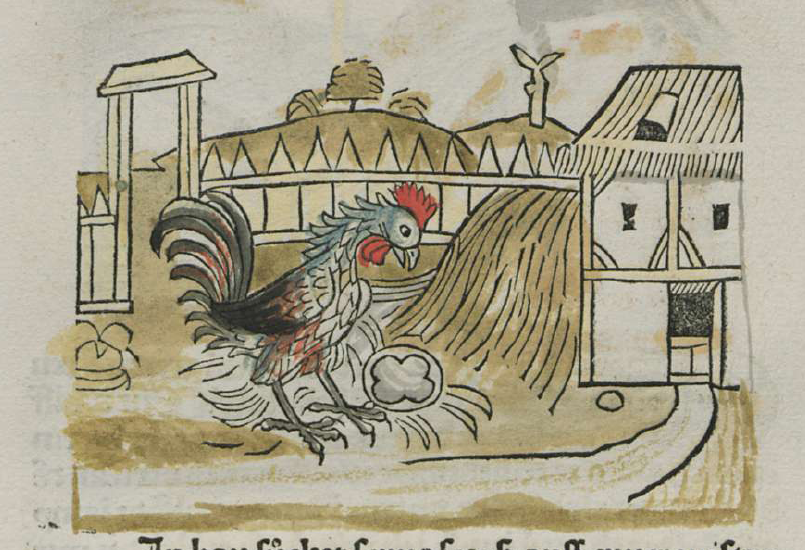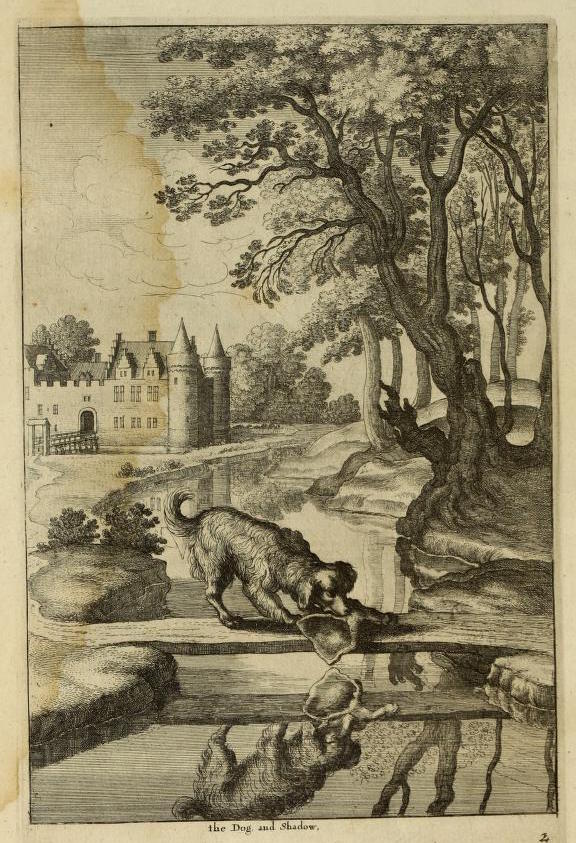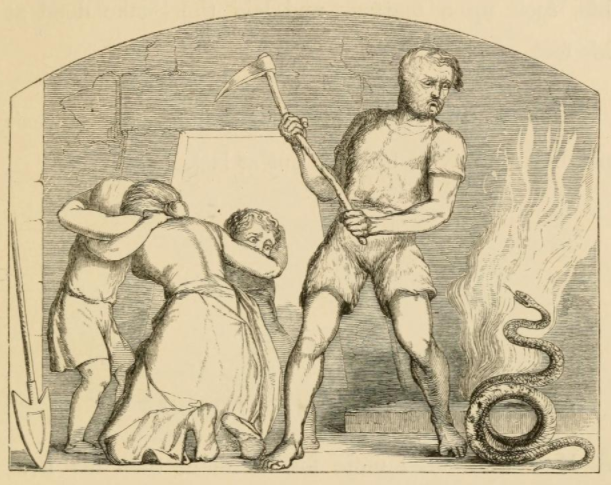Here are some fables from H. Clarke's Latin textbook Fabulae Aesopi selectae, or, Select fables of Aesop, and you can click here for all the fables reposted from this book at the blog. I plan to do a LibriVox recording of this book, so I will be transcribing all the fables here, and later I will be able to embed the LibriVox audio.
1. Of the Cock
A Cock, while he turns up a dunghill, finds a jewel, saying, why do I find a thing so bright? If a jeweller had found thee, nothing would be more joyful than he, as who would know the price: indeed it is of no use to me, nor do I esteem it at a great rate; nay indeed I had rather have a grain of barley than all jewels.
The Moral. Understand by the jewel, art and wisdom; by the cock, a man foolish and voluptuous; neither fools love liberal arts, when they know not the use of them; nor a voluptuous man, because pleasure alone pleases him.

2. Of the Dog and the Shadow
A dog swimming over a river carried flesh in his chops; the sun shining, the shadow of the flesh shone in the waters; which he, seeing and greedily catching at, lost what was in his jaws: therefore struck with the loss both of the thing and his hope, at first he was amazed; afterwards, taking courage, thus he barked out: wretch! moderation was wanting to thy desire: there was enough, and too much, unless thou hadst been mad. Now, through thy folly, there is less than nothing for thee.
Moral. Let there be moderation to thy desire, lest thou lose certain things for uncertain.

3. Of the Wolf and the Crane
While a wolf devoureth a sheep, by chance the bones stuck in his throat; he goes about, asks help, nobody assists; all say that he had got the reward of his greediness: at length, with many flatteries and more promises, he draws in the crane, that her very long neck being thrust into his throat, she would pull out the bone fixed in. But he played upon her asking a reward, saying, fool, go away! hast thou not enough, that thou livest? Thou owest thy life to me; if I would, I was able to bite off thy neck.
Moral. What thou doest for the ungrateful, perisheth.
4. Of the Countryman and the Snake
A countryman brought home a snake found in the snow, almost dead with cold; he lays him to the fire; the snake, recovering strength and poison, then not bearing the flame, filled all the cottage with hissing. The countryman, snatching a stake, runs up, and expostulates the injury with him in words and blows, whether he would return these thanks? Whether he would take life from him, who had given life to him?
Moral. Sometimes it happens that they are hurtful to thee, whom thou hast profited; and they deserve ill of thee, of whom thou hast deserved well.

5. Of the Boar and the Ass
While the sluggish ass laughed at the boar, he, fretting, gnashed his teeth. Most slothful wretch, thou hast indeed deserved evil; but although thou hast been worthy of punishment, yet I am unfit who may punish thee. Laugh secure, for thou art safe for thy sluggishness.
Moral. Let us give an endeavour, that when we hear or endure things unworthy of us, we do not say or do things unworthy of us. For bad and lost men generally rejoice, if any one of the good resist them; they value it at a great rate that they are accounted worthy of revenge. Let us imitate horses and great beasts who pass by barking curs with contempt.

No comments:
Post a Comment
Comments are limited to Google accounts. You can also email me at laurakgibbs@gmail.com or find me at Twitter, @OnlineCrsLady.